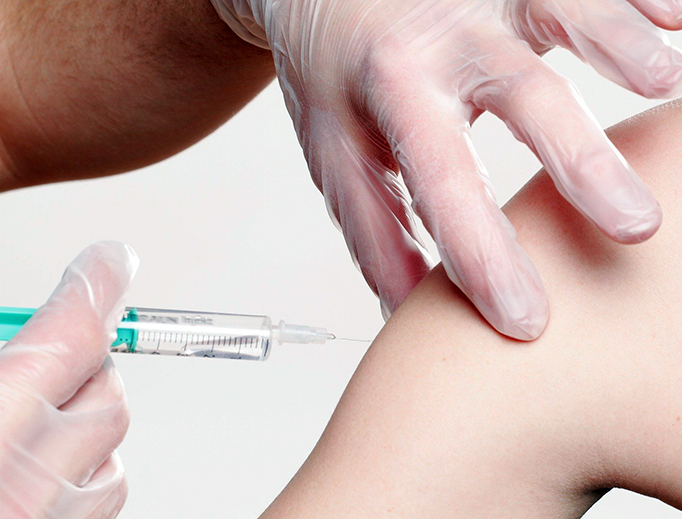Company Discontinues Polio Vaccine Made With Aborted Fetal Cell Line
Similar Protections Should Be Applied in COVID-19 Research

The world’s largest company devoted exclusively to research and manufacture of vaccines has discontinued production of their Poliovax vaccine, which is produced using a cell line from an aborted child.
According to Children of God for Life, a pro-life group which advocates for ethical vaccines, medicines and consumer products, the pharmaceutical giant Sanofi Pasteur has switched from using the MRC-5 fetal cells to the moral Vero (monkey) cells and will continue production of their separate polio vaccine IPOL, which also uses Vero cells. “This means,” according to the Children of God website, “that for the first time in decades, Sanofi Pasteur will no longer have an aborted fetal version of polio vaccine.”
Children of God for Life has played a prominent role in campaigning against the vaccines which are dependent on fetal tissue. In 2008, when the CDC’s Advisory Committee for Immunization Practices (ACIP) recommended Sanofi’s Pentacel vaccine for children, Children of God for Life responded with an information campaign. They called upon physicians and the general public to refuse Pentacel, and to instead request other moral options already available on the market.
The MRC-5 cells were first obtained in 1966, using lung tissue of a male child in the U.K. who was aborted after just 14 weeks gestation due to the mother’s “psychiatric reasons.” The MRC-5 cell line has since then been used in several vaccines, including vaccines for chickenpox, hepatitis-A, rubella, rabies, shingles and smallpox.
But is it ever acceptable to use tissue from aborted fetuses, even if it provides health benefits for us?
Moral Implications for COVID-19 Vaccine Research
Pro-life Americans want to protect their health and the health of their families, but they do not want to use cell lines obtained from aborted children. Often, pro-life people are faced with a dilemma: How can they safeguard their families’ health, yet ensure that they are not made complicit in immoral medical treatments, which depend in part on such techniques?
The problem of ethical vaccines is addressed head-on in Pope St. John Paul II’s 1995 encyclical Evangelium Vitae (The Gospel of Life). In that letter, the Holy Father called attention to the modern-day clash between the “culture of life” and the “culture of death.” He wrote that “the killing of innocent human creatures, even if carried out to help others, constitutes an absolutely unacceptable act.”
And Pope Benedict XVI, in his Donum Vitae (1987), reminded us that science must be restrained by morality, that “what is technically possible is not for that very reason morally admissible.” The fact that abortion is legal in America does not mean that it is morally permissible to exploit these children to cure a global pandemic.
Bishop Joseph Strickland of Tyler, Texas, has issued a pastoral letter to his flock, urging support for the ethical development of COVID-19 vaccines to safeguard health. He writes:
Thankfully, ethical means are available and can prove to be just as effective in developing vaccines; umbilical cells, placental cells, adult stem cells — and other sources of cells, including even those of insects, provide completely viable paths to an effective vaccine. Scientists I’ve spoken with assure me that there is no medical necessity for using aborted children in order to develop the much-needed vaccine to protect us from this particular strain of coronavirus.
And on April 17, four Catholic bishops joined with other prominent healthcare, bioethics and pro-life leaders to urge the Food and Drug Administration to ensure that vaccines for COVID-19 are developed ethically and are free from any connection to the exploitation of abortion. The bishop signatories are Archbishop Joseph Naumann of Kansas City, chairman of the Committee on Pro-Life Activities; Archbishop Paul Coakley of Oklahoma City, chairman of Committee on Domestic Justice and Human Development; Bishop Kevin Rhoades of Fort Wayne-South Bend, chairman of the Committee on Doctrine; and Bishop John Doerfler of Marquette, chairman of the Subcommittee on Healthcare Issues. The letter was addressed to FDA Commissioner Dr. Stephen M. Hahn, and expressed strong support for efforts to develop an effective, safe, and widely available vaccine as quickly as possible. At the same time, the letter urged that the federal government “ensure that fundamental moral principles are followed in the development of such vaccines, most importantly, the principle that human life is sacred and should never be exploited.”
The signatories, in their letter, acknowledged that among the dozens of vaccines currently in development, some are being produced using old cell lines that were created from the cells of aborted babies. “Furthermore,” they wrote,
there is no need to use ethically problematic cell lines to produce a COVID vaccine, or any vaccine, as other cell lines or processes that do not involve cells from abortions are available and are regularly being used. ... It is critically important that Americans have access to a vaccine that is produced ethically: no American should be forced to choose between being vaccinated against this potentially deadly virus and violating his or her conscience.
Children of God for Life has published a comprehensive listing of COVID-19 vaccines currently in development. The list includes 15 that are morally produced and that do not rely on morally problematic cell lines, and seven that use cell lines from aborted humans.
They encourage concerned Americans to contact Sanofi Pasteur, expressing appreciation for their efforts in providing morally produced polio and COVID-19 vaccines. Letters can be addressed to Dr. John Shiver, Global Head of R&D, Sanofi Pasteur, Box 187 Discovery Drive, Swiftwater, PA 18370.
- Keywords:
- abortion
- vaccination

















